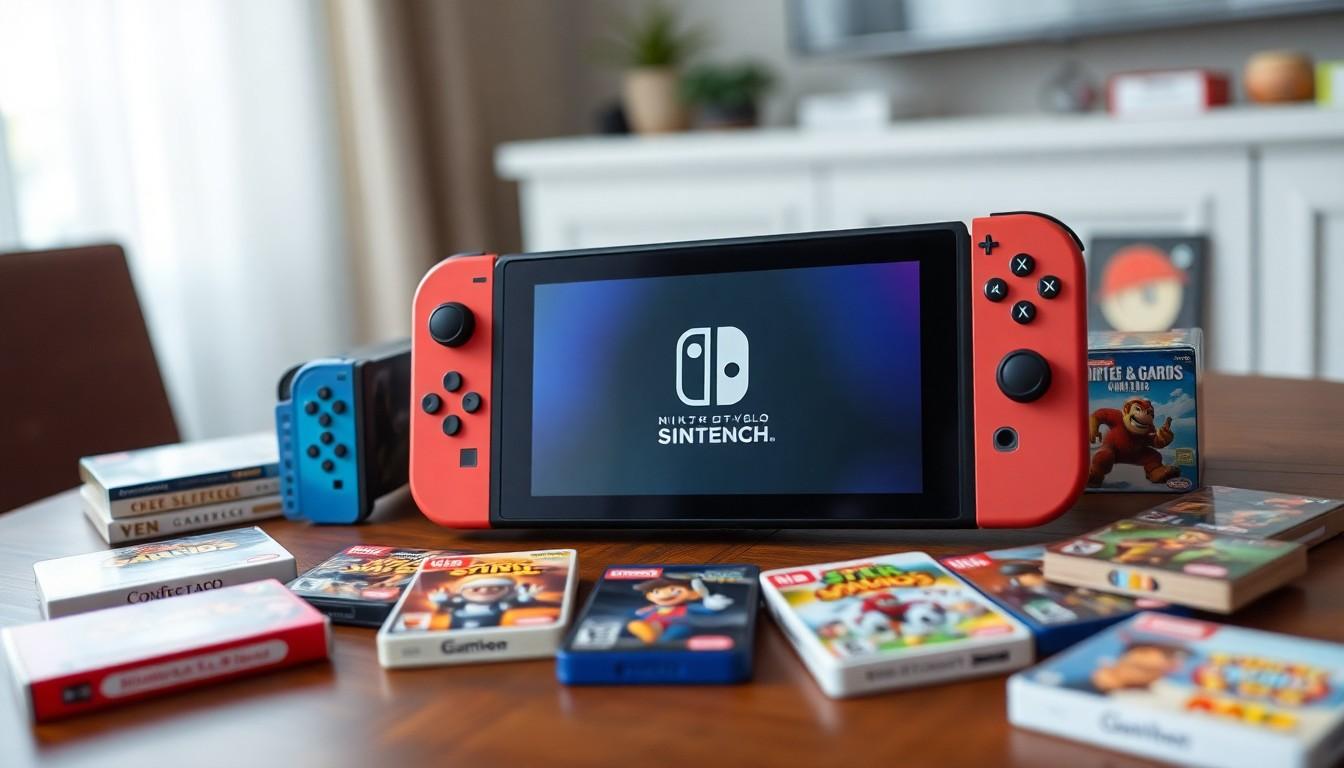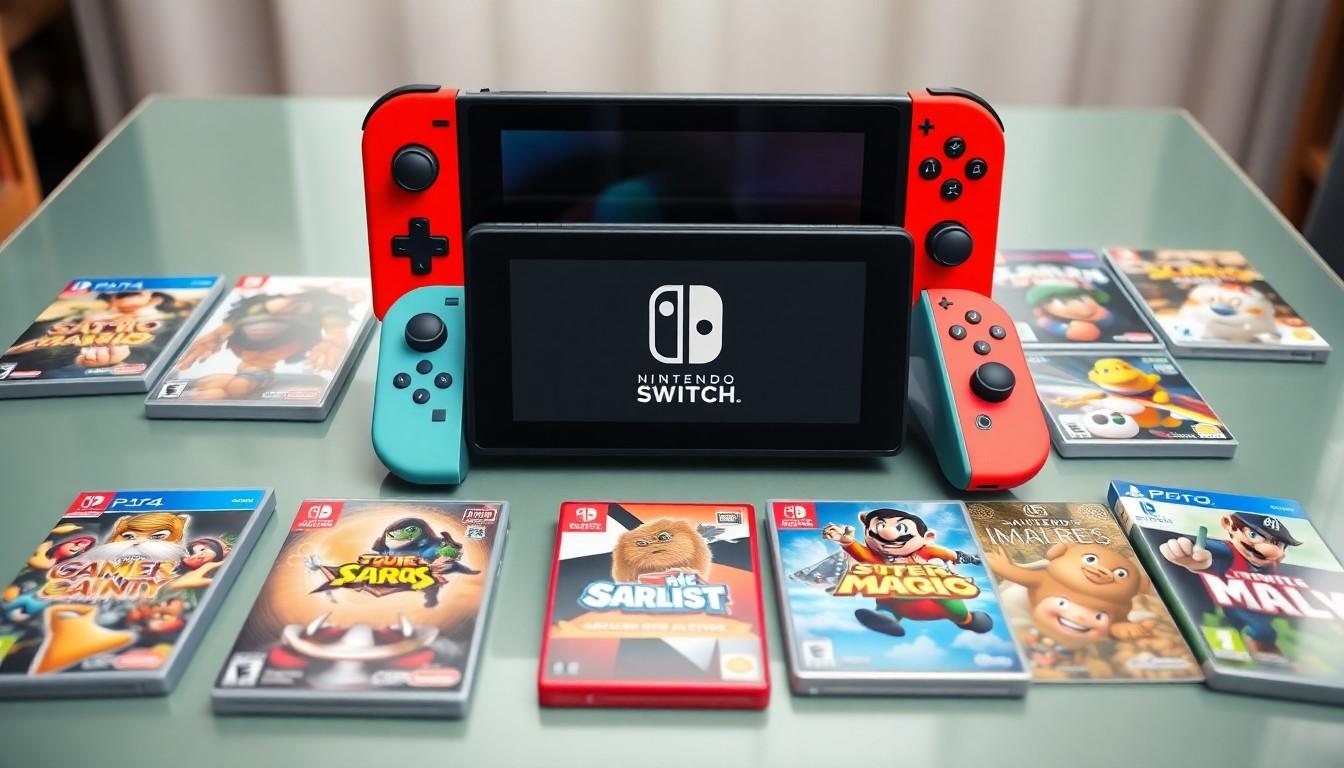Gamers around the world have embraced the Nintendo Switch for its versatility and fun. But amidst the excitement, a burning question lingers: is this beloved console region locked? Imagine trying to play that hot new title from Japan while stuck in the U.S. It’s like trying to enjoy sushi at a barbecue—just doesn’t mesh well!
Table of Contents
ToggleUnderstanding Region Locking
Region locking refers to the practice of restricting the use of gaming consoles and their software based on geographical locations. This limitation affects gamers wanting to access games from other regions, impacting their experience.
What Is Region Locking?
Region locking prevents games from being played on consoles outside their intended markets. For instance, a game sold in North America may not function on a console designed for the European market. This mechanism enforces compatibility and ensures that games adhere to local regulations. Different regions often have unique game versions that cater to local languages or cultural preferences.
Why Do Consoles Use Region Locking?
Consoles employ region locking for several reasons. Primarily, it helps manage game distribution and pricing strategies across different markets. Publishers protect their revenue streams by preventing the importation of cheaper games from other regions. Additionally, region locking ensures that games comply with local content regulations, adhering to legal and cultural standards that vary by country. This practice also allows publishers to offer localized experiences tailored to specific audiences.
Is The Nintendo Switch Region Locked?

The Nintendo Switch features a unique approach to region locking compared to its predecessors. It’s crucial to understand the implications of this design on gaming experiences.
Official Statement from Nintendo
Nintendo confirmed that the Switch is not region locked. Gamers can play physical games from any region on their consoles. This flexibility allows players to access a wider selection of titles, including those that may not be available in their country. The decision reflects Nintendo’s commitment to prioritizing user experience and making gaming more accessible. Digital content may still have region-specific restrictions, but overall, players enjoy greater freedom compared to older systems.
Comparison with Previous Consoles
Previous Nintendo consoles, such as the Wii and Wii U, enforced strict region locking. Gamers needed to purchase region-specific consoles to play certain titles. This limitation often frustrated players who wanted access to international games. In contrast, the Switch encourages global gaming, unlocking new markets for both developers and players. By removing region locks, Nintendo allows a more diverse gaming community to thrive. The shift represents a significant change in the company’s strategy, aligning with evolving gaming habits.
Implications of Region Locking
Region locking impacts gamers significantly, particularly in terms of game access. The Nintendo Switch’s lack of region locking broadens options for players worldwide. Gamers can purchase and play titles from different regions without restrictions.
Game Availability
With no region locking, gamers enjoy access to a diverse library of titles. Players can explore exclusive releases from various regions, including Japan’s popular games. This flexibility ensures access to content unavailable in local markets. Players can find games that cater to different preferences and interests. Enthusiasts can engage with foreign titles, enriching their gaming experience.
Importing Games
Importing games becomes an appealing option without region restrictions. Gamers can buy physical copies from international retailers, accessing limited-edition releases. The ability to import often leads to savings on certain titles. Importing allows players to participate in regional gaming trends and communities. Various platforms facilitate easy access to shipping international games directly to players’ homes.
How to Play Region-Locked Games
Nintendo Switch’s lack of region locking opens various avenues for gamers wanting to explore titles from different regions. Players can enjoy a richer gaming experience without geographical barriers.
Using Alternative Methods
Exploring alternative methods enhances the options for gamers. Importing physical games from international retailers represents one way to access diverse titles. Digital downloads from foreign accounts also offer significant availability. Gamers can create a new Nintendo Account based in another region to access exclusive games. Via this method, players may find unique content that’s otherwise unavailable in their local stores. Lastly, purchasing titles from online marketplaces, like eBay or specialized retailers, allows for an expanded library.
Legal Considerations
Considering legal implications is essential when venturing into region-specific gaming. Importation of physical games is generally permissible, but regional laws may vary. Ensuring compliance with local customs regulations and taxes avoids potential issues. Downloading games from foreign eShops typically operates under the terms of service set by Nintendo. Violating these terms could lead to access issues or account penalties. Being aware of local laws related to content rights often safeguards against unintended violations. Each gamer benefits from understanding these regulations before adopting alternative gaming methods.
Conclusion
The Nintendo Switch’s lack of region locking marks a significant shift in gaming accessibility. Gamers now enjoy the freedom to explore a vast library of titles from around the world. This flexibility not only enhances their gaming experience but also fosters a more inclusive community.
With the ability to import games and access exclusive releases, players can tailor their gaming journey to their preferences. Understanding the legalities surrounding international gaming ensures that they can navigate this landscape confidently. Overall, the Switch’s approach invites players to embrace a global gaming culture like never before.




